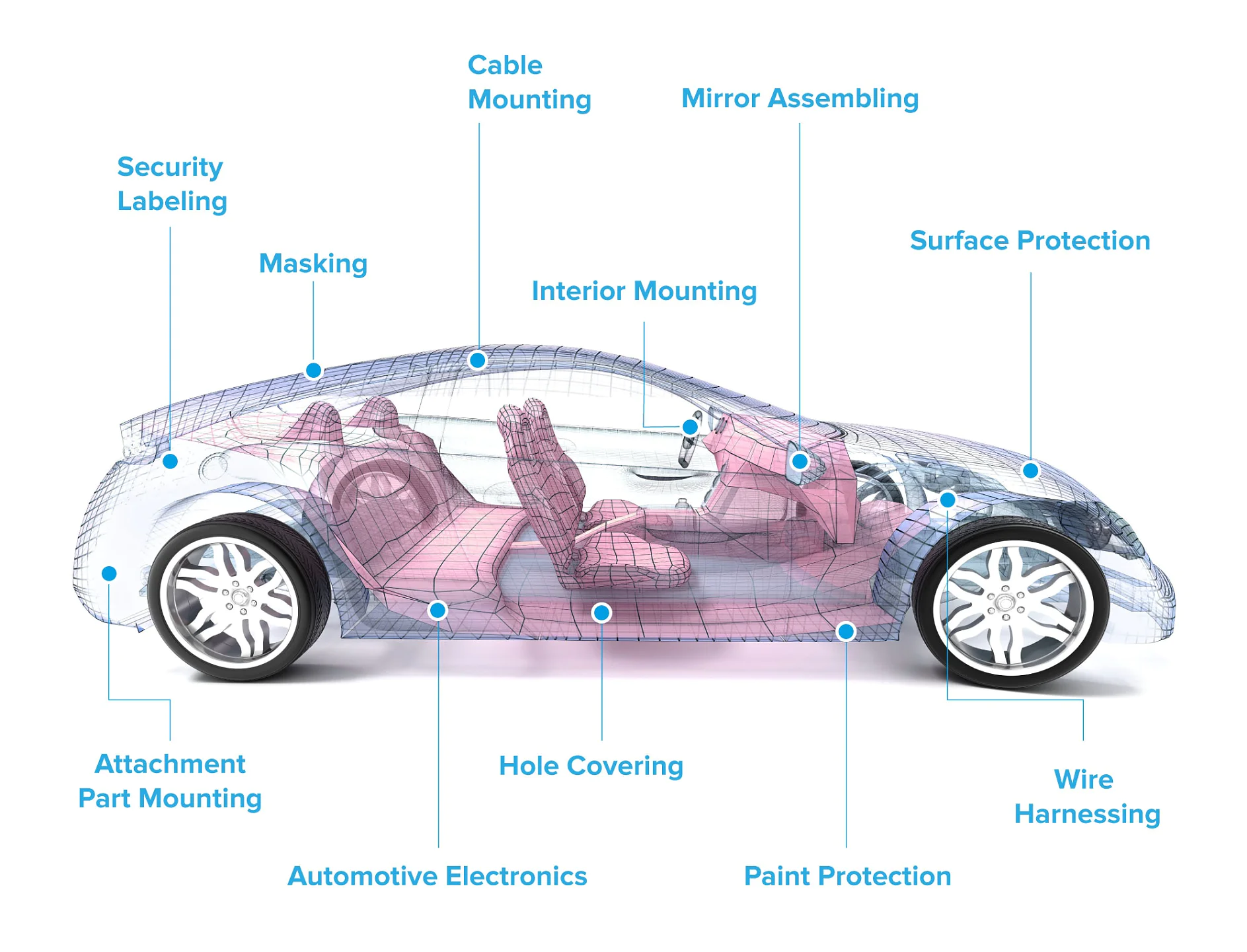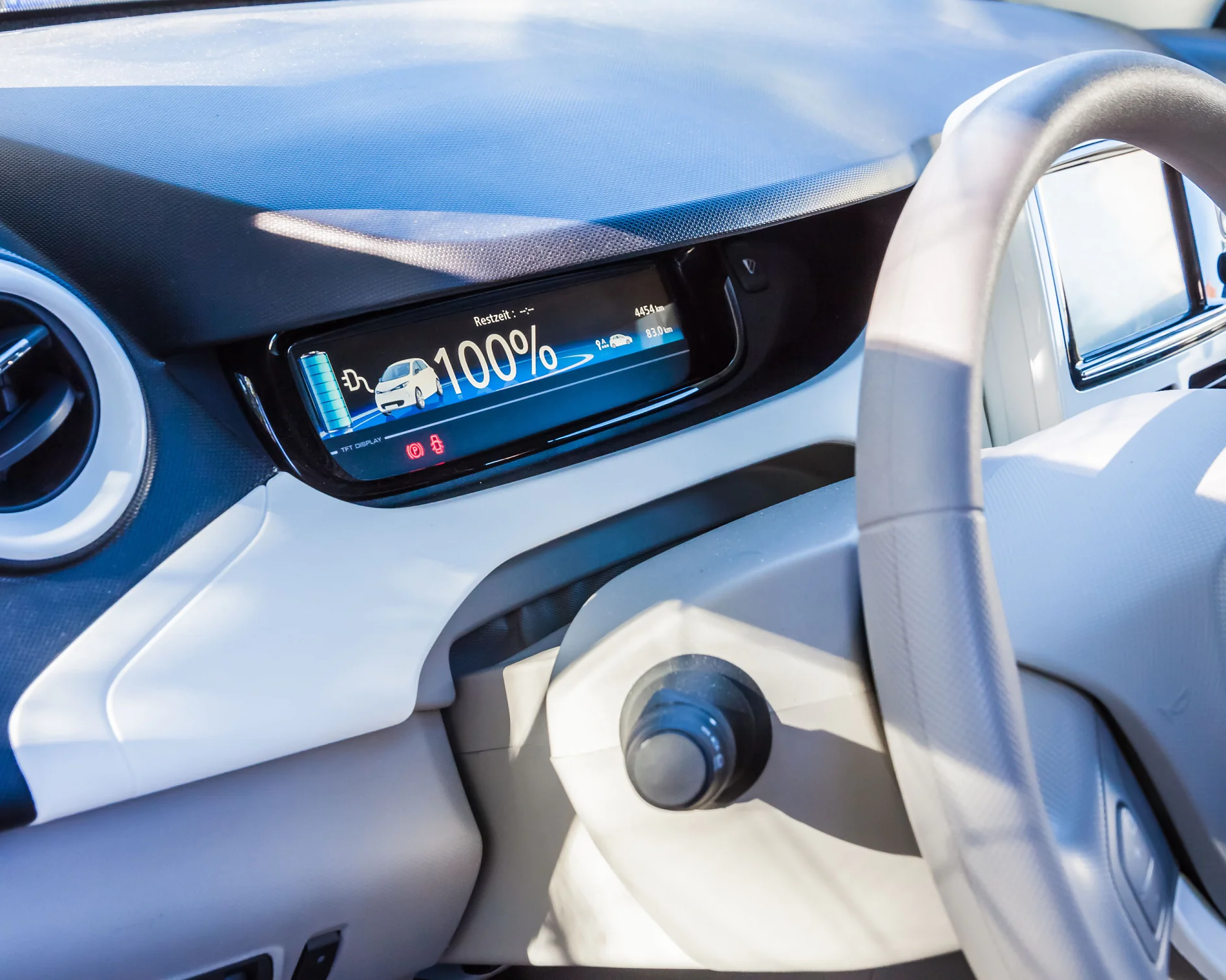Along with advances in electronic technologies, growing demands in terms of design, functionality and quality in particular are bringing about long-term changes in vehicle construction. Where parts were formerly welded, soldered, and screwed, adhesive tape solutions are increasingly becoming the solution of choice. The sleeker, lighter, and often more cost-effective connection technology is now present in almost all automotive compon

Why Tape Is Crucial to the Automotive Industry
Markets
Modern automotive construction without adhesive tape technology is inconceivable. More than 100 different types of tape are concealed within every new car. They fulfill functional purposes that are as important as they are different.
Trend Towards Reduction
Using adhesive tapes
in state-of-the-art car production is on the rise.

Less is more: less weight, lower costs, reduced fuel consumption and fewer emissions. The use of tesa® tape technology supports this trend for reduction. The reason for this is that tape can be applied efficiently and, in addition to meeting rising cost pressure and high aesthetic expectations, also helps to fulfill the increasingly stringent safety and environmental standards of the automotive industry.
At the same time, cars – just like smartphones – are evolving more and more into “mobile computers.” The increasing digitalization of vehicles requires lean solutions in the design of their inner workings. For this reason too, a new vehicle without adhesive tapes would be unimaginable today. The large tesa® product range thereby offers a wide range of solutions, because not all tapes are the same. The required characteristics are too varied, depending on their usage in different areas of the body and the passenger compartment.
4.5% market growth
will be attained by automotive tapes until 2025.
Source: Industry Report Automotive Adhesive Tapes Market Size, 2019u20122025
A Solution for Every Requirement
Design elements in the vehicle interior are bonded with sheer tapes: on the one hand because of aesthetics but also for more driving comfort – for example through the use of noise dampening tesa® special adhesive tapes. In the vehicle shell, on the other hand, properties such as resistance to heat, cold, moisture, and UV light are especially required. Special options in terms of design and efficiency are offered by applications such as the new tesa® HiP, which securely bonds different plastics with differing characteristics.


Plastic is lightweight, rugged, durable, and visually appealing. Given that strict international regulations for emissions reduction are forcing manufacturers to subject new vehicles to a comprehensive material ‘diet’ so they lose weight, it is no wonder that the use of plastics in automotive construction increased by 20 percent just between 2007 and 2014. “tesa® HiP bonds many plastics, even those with low surface energy, and is highly attractive for the future of the automotive industry,” says Dr. Jennifer Kipke, Laboratory Manager for Interior & Automotive Electronics.
The Lightness of the Tape
The mere fact that each weight reduction of ten percent results in a reduction in fuel consumption of five to seven percent shows why the use of plastics in automotive construction is on the rise. Plastics are also used together with carbon or certain other lightweight composite materials in addition to or instead of metals. This way, in combination with customized tesa tape technology, weight savings of up to 50 percent can be achieved in individual vehicle components.
Entry into the global markets: IATF Certification
IATF stands for International Automotive Task Force. Their QMS standard IATF 16949 is a supplement to the ISO 9001 standard and an important mainstay in the global automotive industry. It sets out the quality management system requirements for prototype and series production. Without an ongoing IATF certificate covering the internal production chain, it is virtually impossible to enter into partnerships with major OEMs and suppliers. The certificate attests to the quality of all manufacturing, customer-related, supportive and management-related processes. In a complex procedure, these processes are documented according to certain prerequisites and regularly reviewed by external auditors as part of a verification lasting several days at the company’s premises. At the tesa headquarters, the Technology Center was also recently granted IATF certification in addition to Research & Development and all plants that produce for the automotive sector. This way, innovative products developed in response to customer needs in particular can be brought faster to market.
"With the IATF certification, we meet the highest quality standards of automotive manufacturers and their suppliers."
Director tesa Technology Center